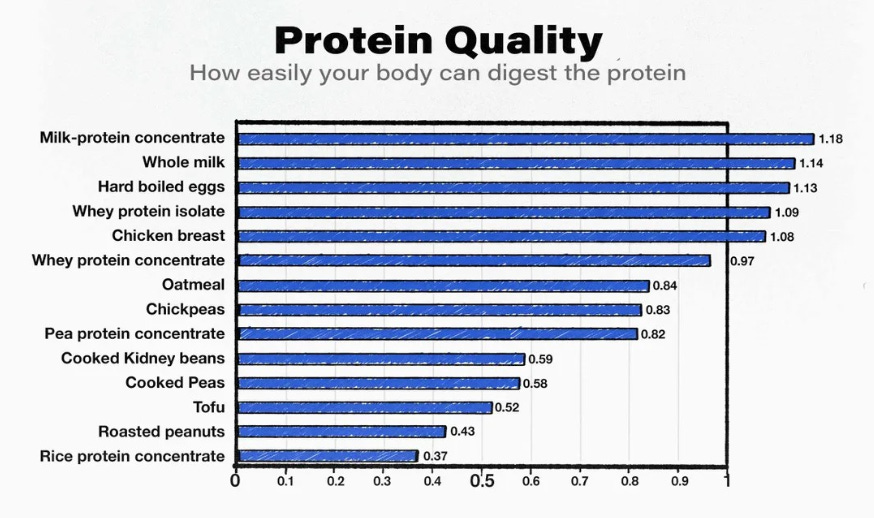· supplements · 13 min read
Should I Take Creatine While Trying To Lose Belly Fat? The Truth Revealed
In this comprehensive article, we will delve into the science behind creatine, how it works, and its potential benefits for weight loss. We will also explore any potential side effects and the optimal dosage for incorporating creatine into a weight loss plan.
Creatine is a popular supplement known for its ability to enhance athletic performance and support muscle growth. There’s a growing interest in its potential role in weight loss, particularly in targeting stubborn belly fat.
In this comprehensive article, we will delve into the science behind creatine, how it works, and its potential benefits for weight loss. We will also explore any potential side effects and the optimal dosage for incorporating creatine into a weight loss plan. So, if you’ve been wondering whether creatine can aid you in your journey to shed belly fat, keep reading to discover the insights and guidance you need to make an informed decision.
What Is Creatine?
Creatine is a naturally occurring compound that plays a key role in energy production within the body, and it is also commonly available as a dietary supplement.
Its presence in the body contributes to the production of adenosine triphosphate (ATP), the primary source of energy for muscle contractions during high-intensity activities, such as lifting weights or sprinting. As a dietary supplement, creatine has been widely studied for its potential to enhance muscle growth, strength, and power. It has been shown to support hydration at the cellular level, improving overall athletic performance and recovery. This makes it a valuable consideration for individuals involved in fitness pursuits and those seeking to optimize their nutritional intake.
How Does Creatine Work?
The mechanism of action of creatine involves its conversion into phosphocreatine, which serves as a rapidly available energy source during high-intensity activities such as exercise.
The process of creatine conversion into phosphocreatine plays a crucial role in supporting energy metabolism in muscles during intense physical exertion. Research has shown that this conversion allows the muscles to generate energy rapidly, enhancing performance and facilitating muscle growth.
The impact of creatine on body composition has been a topic of interest in the fitness community. It is important to note that adequate hydration is essential when supplementing with creatine, as it helps optimize its benefits and supports overall metabolism.
What Are The Benefits Of Taking Creatine?
The benefits of taking creatine encompass improvements in muscle mass, strength, performance, and potential cognitive functions, supported by scientific research and evidence.
These benefits make creatine supplements a popular choice for athletes and fitness enthusiasts. Studies have shown that creatine supplementation can lead to significant gains in muscle strength and power, particularly during high-intensity, short-duration activities. It has been found to enhance cognitive function, making it a promising supplement for overall mental health.
It’s important to note that while creatine is generally safe when taken within recommended doses, excessive intake may lead to potential side effects such as dehydration, muscle cramps, or kidney damage.
Increases Muscle Mass
One of the primary benefits of taking creatine is its ability to increase muscle mass, making it a popular choice among fitness enthusiasts and athletes seeking to optimize their body composition.
When creatine is used in conjunction with regular strength training, it can lead to greater gains in muscle size and strength. By increasing the body’s phosphocreatine stores, creatine enables the muscles to produce more energy during high-intensity workouts, thereby leading to improved performance and greater muscle hypertrophy.
Creatine has been shown to aid in the recovery process post-exercise, allowing individuals to train harder and more frequently. These benefits make creatine a valuable supplement for those looking to enhance their physical performance, build muscle, and support their overall fitness and healthy lifestyle goals.
Improves Strength And Performance
Creatine supplementation has been linked to improvements in strength and exercise performance, making it a valuable asset for individuals aiming to enhance their physical capabilities and overall body composition.
This natural compound plays a crucial role in supplying energy to muscle cells during high-intensity activities, enabling individuals to push themselves further during workouts and training sessions.
Creatine has been found to support muscle growth by increasing water content in muscle cells, ultimately contributing to enhanced muscle volume and definition. It has the potential to aid in weight loss efforts, as the improved muscle performance can lead to higher calorie expenditure during exercise, further promoting overall improvements in body composition and performance.
Boosts Brain Function
Research suggests that creatine may contribute to enhanced brain function and cognitive performance, indicating its potential benefits beyond physical fitness and muscle growth.
This dietary supplement has gained attention within the scientific community for its possible impact on mental performance. Studies have shown that creatine supplementation could play a role in improving memory, attention, and reasoning skills. It may also assist in reducing mental fatigue and increasing overall alertness.
The positive effects of creatine on brain function warrant further exploration, as it may offer promising implications for individuals seeking cognitive enhancement and mental well-being through supplements.
Helps With Certain Medical Conditions
In specific cases, creatine supplementation has shown potential in aiding certain medical conditions, portraying its versatility beyond fitness and performance enhancement.
For instance, research indicates that individuals with neurodegenerative disorders like Parkinson’s disease may experience improved muscle strength and function with creatine supplementation. Studies have suggested its potential benefits for mitigating symptoms of depression and bipolar disorder.
Creatine’s ability to enhance brain function and cognitive performance has garnered interest in its application for conditions such as traumatic brain injury and age-related cognitive decline. It is important to note that while creatine is generally considered safe, potential side effects and risks, such as dehydration and gastrointestinal issues, should be considered when contemplating its use.
Can Creatine Help With Weight Loss?
The influence of creatine on weight loss is a subject of interest, with its potential impact on metabolism, fat burning, and preservation of lean muscle mass under scrutiny in the context of weight management.
Some studies suggest that creatine supplements may help in improving exercise performance, which in turn could potentially lead to enhanced fat burning and increased lean muscle mass. Creatine supplementation has been found to have a potential impact on the body’s metabolism, potentially aiding in weight loss efforts.
As an adjunct to regular exercise and a balanced diet, creatine may play a role in supporting overall weight management goals, making it a significant area of curiosity for researchers and health enthusiasts alike.
Increases Metabolism
There is ongoing research into the potential of creatine to impact metabolism, potentially contributing to enhanced weight loss and fat burning when combined with appropriate exercise and dietary practices.
It is believed that creatine supplementation may support the body’s energy production, enabling individuals to engage in higher intensity workouts, which can in turn aid in the reduction of overall body fat, including the notorious belly fat. In addition, incorporating creatine into a well-balanced nutrition plan could further optimize metabolism and aid in achieving weight loss goals.
The interplay between creatine, exercise, and nutrition showcases promising potential in the realm of improving metabolic processes and facilitating weight management.”
Enhances Fat Burning
Emerging evidence suggests that creatine may play a role in enhancing fat burning, which could contribute to its relevance in supporting weight management efforts and optimizing body composition.
This potential impact of creatine on fat burning ties into its well-known benefits for muscle growth and strength. By promoting the availability of energy during high-intensity workouts, creatine indirectly supports fat burning by enabling individuals to engage in more vigorous exercise, thus burning more calories. Creatine’s role in cellular hydration may also have implications for weight management, as proper hydration is crucial for optimizing metabolism and maintaining healthy body composition.
These combined effects point to the potential significance of creatine in supporting overall fitness and body composition goals.
Preserves Lean Muscle Mass
One of the potential benefits of creatine in the context of weight loss is its ability to preserve lean muscle mass, which is crucial for maintaining a healthy and balanced body composition.
This preservation of lean muscle is particularly important during weight loss efforts, as it helps to sustain metabolic rate and support the body’s ability to burn calories effectively. When individuals aim to lose belly fat and achieve a fitter body, maintaining lean muscle can contribute significantly to their overall fitness goals.
By incorporating creatine supplementation into a well-rounded fitness and nutrition regimen, individuals may experience enhanced muscle retention, improved exercise performance, and long-term support for their journey towards a healthier lifestyle.
Improves Exercise Performance
The potential impact of creatine on exercise performance holds implications for supporting weight loss efforts and overall fitness, making it a noteworthy consideration within the realm of supplementation.
Research suggests that creatine supplementation may enhance exercise performance, strength, and muscle mass. By increasing the body’s ability to produce energy during intense physical activity, creatine can aid in maximizing workout potential and promoting efficient fat loss. These benefits are particularly relevant for individuals engaging in resistance training and high-intensity interval workouts, where creatine’s ability to improve muscle recovery and endurance can support progress towards weight management and fitness goals.
What Are The Potential Side Effects Of Taking Creatine?
While creatine is generally well-tolerated, potential side effects may include:
- Water retention
- Digestive issues
- The rare possibility of adverse reactions when taken in excessive or inappropriate dosages
It’s important for individuals considering creatine supplements to be aware of these potential side effects and to carefully follow dosage recommendations. When used responsibly, creatine can offer numerous benefits, such as improved muscle strength and performance during high-intensity exercise.
It’s essential to emphasize the significance of hydration when taking creatine supplements to mitigate the risk of water retention and to support overall health and well-being. Maintaining adequate hydration levels can help minimize the likelihood of experiencing side effects while maximizing the benefits of creatine supplementation.
Water Retention
One of the commonly reported side effects of creatine supplementation is water retention, which may vary in its impact across individuals and typically occurs in the initial stages of usage.
This temporary increase in water weight can lead to a bloated or puffy appearance, particularly in the abdominal area. It’s important to note that this effect is generally harmless and tends to subside as the body adjusts to the supplement. Engaging in regular physical activity, such as strength training and cardiovascular exercises, can help mitigate water retention. Maintaining a well-balanced diet and hydration levels can contribute to overall water balance and support an active, healthy lifestyle. By incorporating these practices, individuals can still effectively work towards their fitness goals, such as losing belly fat, while reaping the benefits of creatine supplementation.
Digestive Issues
Some individuals may experience digestive issues such as bloating or discomfort as a potential side effect of creatine consumption, highlighting the need to assess individual tolerances and dietary considerations.
It is essential to recognize that the impact of creatine on digestive health can vary from person to person. Factors such as pre-existing gastrointestinal conditions, dosage, and individual sensitivities to supplements play a crucial role in determining the potential risks. Understanding these considerations and consulting a healthcare professional can aid in evaluating the appropriateness of creatine supplementation and mitigating potential digestive discomfort.
Integrating creatine into a well-balanced diet and staying adequately hydrated may help minimize digestive concerns related to its intake.
Kidney Damage
In rare cases and with excessive or inappropriate dosage, creatine supplementation may pose a risk of kidney damage, necessitating careful consideration of appropriate usage and dosages.
It is important for individuals considering creatine supplementation to consult with a healthcare professional or a certified sports nutritionist to determine the correct dosage and usage. Maintaining adequate hydration levels is crucial to mitigate the potential risk of kidney damage associated with creatine. Proper hydration helps the kidneys to process and eliminate waste products efficiently. It’s essential to be mindful of the duration and cycles of creatine use to minimize any potential adverse effects on kidney function. Ensuring responsible and informed use of creatine can help maximize its benefits for muscle growth while minimizing the associated risks.
Interactions With Other Medications
It is essential to consider potential interactions between creatine and other medications, as these interactions may pose risks and require professional medical guidance for individuals with specific health conditions.
When combining creatine with certain medications, there is a possibility of adverse effects or diminished effectiveness. It’s important to consult a healthcare professional before adding creatine supplements to your regimen, especially if you are taking prescription medications.
While creatine offers various benefits for athletic performance and muscle strength, its interaction with specific drugs can impact your overall health. Understanding the potential risks and benefits through professional assessment can help safeguard against any negative outcomes.
How Much Creatine Should I Take While Trying To Lose Belly Fat?
Determining the appropriate creatine dosage while aiming to lose belly fat involves considering factors such as individual body weight, activity levels, and specific goals for weight management and fat burning.
When it comes to weight loss and fat burning, research suggests that creatine supplementation could enhance metabolism and support lean muscle mass retention, which can be beneficial during calorie restriction. Individual factors such as metabolism, muscle mass, and overall health should also be taken into account when determining the optimal creatine dosage.
Activity levels and the intensity of training play a critical role in the effectiveness of creatine supplementation for weight management, as higher activity levels may require adjustments in dosage to support energy metabolism and muscle recovery.
How Can I Incorporate Creatine Into My Weight Loss Plan?
Incorporating creatine into a weight loss plan involves strategic considerations related to its supplementation alongside a balanced diet, appropriate exercise regimen, and a comprehensive approach to maintaining a healthy lifestyle.
The addition of creatine to a weight loss plan can enhance the benefits of exercise, helping to promote lean muscle mass and increase overall strength and performance. When combined with a well-rounded diet and regular physical activity, creatine may aid in the reduction of body fat, including stubborn areas like belly fat.
Its ability to support high-intensity workouts can contribute to improved metabolism and calorie expenditure, further supporting the holistic approach to weight loss.
Frequently Asked Questions
Can taking creatine help me lose belly fat?
Yes, taking creatine can help you lose belly fat. While it is primarily known for its benefits in improving athletic performance, research has also shown that creatine can aid in weight loss by increasing muscle mass and boosting metabolism.
How does creatine specifically target belly fat?
Creatine works by increasing the production of ATP (adenosine triphosphate), which is the main source of energy for our muscles. By increasing ATP levels, creatine helps our muscles perform better, leading to improved workouts and ultimately, increased calorie burning. This means that creatine can help you target belly fat through improved exercise performance.
Do I need to exercise while taking creatine to see results?
While exercise is always beneficial for weight loss, creatine can still be effective in helping you lose belly fat even without regular exercise. However, incorporating exercise into your routine can greatly enhance the effects of creatine on weight loss.
Is there a recommended dosage for taking creatine while trying to lose belly fat?
The recommended dosage for creatine varies depending on the individual and their weight. It is generally recommended to start with a loading phase of 20-25g per day for 5-7 days, followed by a maintenance phase of 2-5g per day. However, it is important to consult with a healthcare professional before starting any supplement regimen.
Are there any potential side effects of taking creatine while trying to lose belly fat?
While creatine is generally considered safe for most individuals, there are some potential side effects to be aware of, such as dehydration, muscle cramping, and gastrointestinal distress. It is important to stay hydrated and follow the recommended dosage to minimize these potential side effects.
Is creatine suitable for everyone looking to lose belly fat?
Creatine can be beneficial for individuals looking to lose belly fat, but it may not be suitable for everyone. Those with kidney or liver problems, as well as pregnant or breastfeeding women, should avoid taking creatine. It is always best to consult with a healthcare professional before starting any new supplement.






